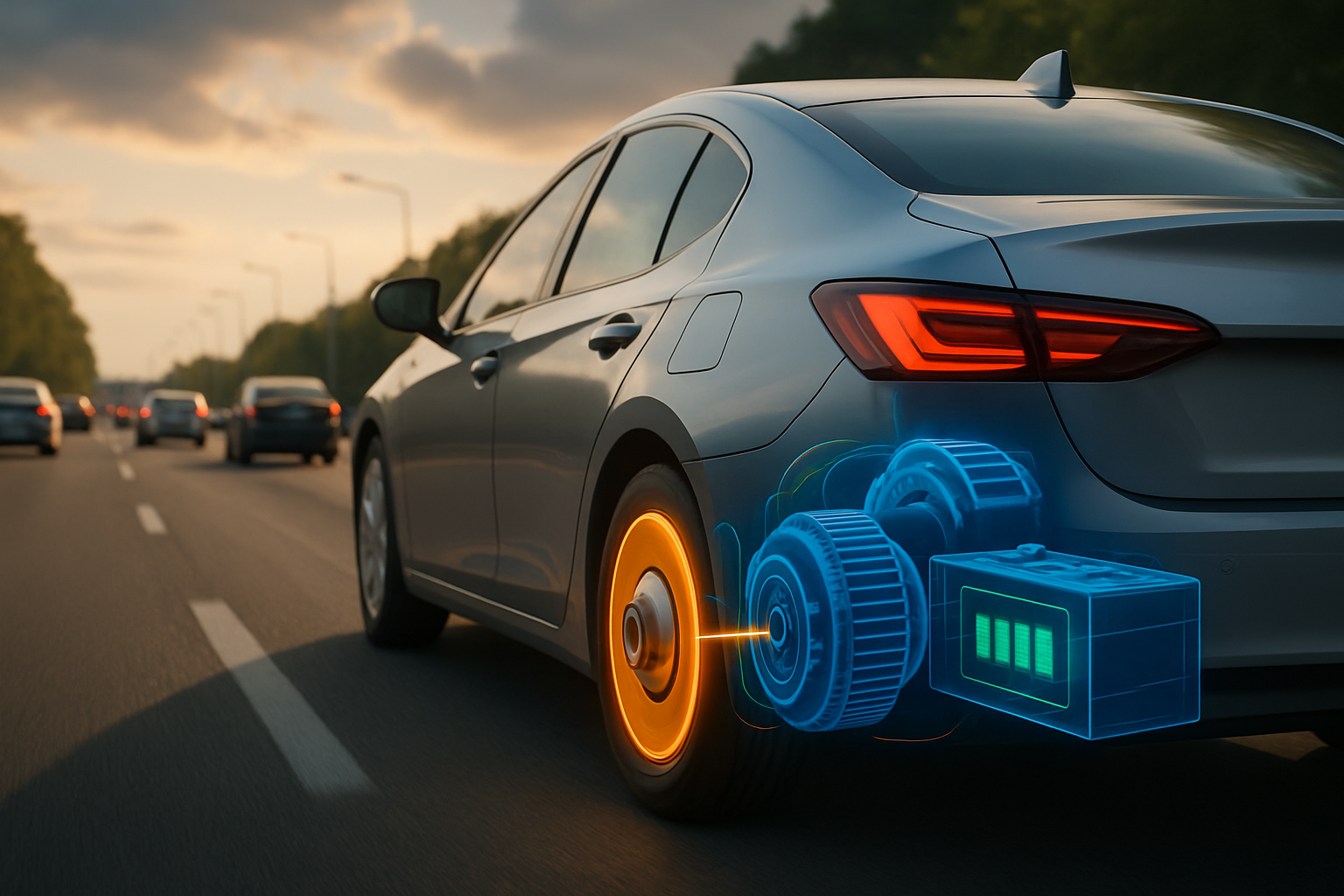Discover 2025 Hybrid SUV Benefits
Hybrid SUVs represent a significant evolution in automotive technology, combining traditional gasoline engines with electric motors to deliver enhanced performance and efficiency. As we move into 2025, these vehicles offer compelling advantages that make them increasingly attractive to consumers seeking both environmental responsibility and practical transportation solutions. Understanding the key benefits of hybrid SUVs can help you make an informed decision about your next vehicle purchase.

The automotive landscape continues to evolve rapidly, with hybrid SUVs emerging as a popular choice for drivers who want the versatility of a sport utility vehicle without compromising on environmental impact or fuel costs. These innovative vehicles represent a bridge between traditional gasoline-powered SUVs and fully electric alternatives, offering unique advantages that appeal to a broad range of consumers.
What Makes Hybrid Powertrain Technology Special
Hybrid powertrain systems combine a conventional internal combustion engine with one or more electric motors, creating a sophisticated propulsion system that optimizes performance and efficiency. The electric motor assists the gasoline engine during acceleration, reducing the workload on the primary engine and improving overall efficiency. During certain driving conditions, such as low-speed city driving, the vehicle can operate solely on electric power, eliminating emissions and reducing noise levels. The regenerative braking system captures energy that would otherwise be lost during deceleration, storing it in the battery for later use.
Fuel Economy Advantages of Modern Hybrid SUVs
One of the most significant benefits of hybrid SUVs is their superior fuel economy compared to traditional gasoline-powered counterparts. Most hybrid SUVs achieve fuel efficiency ratings that are 20-40% better than similar conventional models. This improvement stems from the electric motor’s ability to provide power during city driving, where traditional engines are least efficient. The seamless transition between electric and gasoline power ensures optimal fuel consumption across various driving conditions. Additionally, the automatic engine start-stop feature reduces fuel consumption during idle periods, such as at traffic lights or in stop-and-go traffic.
Advanced Safety Features in 2025 Hybrid SUVs
Modern hybrid SUVs incorporate cutting-edge safety technologies that protect occupants and enhance driving confidence. These vehicles typically feature comprehensive driver assistance systems, including adaptive cruise control, lane departure warning, and automatic emergency braking. The low center of gravity created by the battery placement often improves vehicle stability and handling characteristics. Many models include blind-spot monitoring, rear cross-traffic alert, and 360-degree camera systems that provide enhanced visibility around the vehicle. The quiet operation of electric motors at low speeds has prompted manufacturers to add pedestrian warning systems to ensure safety in urban environments.
| Vehicle Model | Manufacturer | Fuel Economy (MPG) | Starting Price Estimate |
|---|---|---|---|
| Toyota Highlander Hybrid | Toyota | 36 city/35 highway | $40,000-$45,000 |
| Honda Pilot Hybrid | Honda | 28 city/31 highway | $38,000-$43,000 |
| Ford Explorer Hybrid | Ford | 27 city/29 highway | $35,000-$40,000 |
| Lexus RX Hybrid | Lexus | 31 city/28 highway | $48,000-$55,000 |
| Acura MDX Hybrid | Acura | 26 city/27 highway | $52,000-$58,000 |
Prices, rates, or cost estimates mentioned in this article are based on the latest available information but may change over time. Independent research is advised before making financial decisions.
Environmental Impact and Long-Term Benefits
Hybrid SUVs produce significantly lower emissions compared to traditional gasoline-powered vehicles, contributing to improved air quality and reduced environmental impact. The combination of electric and gasoline power results in fewer greenhouse gas emissions per mile traveled. Many hybrid SUVs qualify for federal and state tax incentives, providing additional financial benefits to buyers. The reduced dependence on gasoline also contributes to energy security by decreasing overall petroleum consumption. As the electrical grid becomes cleaner through renewable energy sources, the environmental benefits of hybrid vehicles continue to improve over time.
Performance and Driving Experience
Contrary to common misconceptions, hybrid SUVs often deliver superior performance compared to their conventional counterparts. The instant torque provided by electric motors enhances acceleration and responsiveness, particularly during city driving. The seamless integration of electric and gasoline power creates a smooth, refined driving experience with minimal noise and vibration. Many drivers appreciate the quiet operation during electric-only mode, which is especially noticeable in residential areas or parking structures. The sophisticated powertrain management systems optimize performance based on driving conditions, ensuring efficient operation without sacrificing capability.
Hybrid SUVs represent a practical and forward-thinking choice for consumers seeking the benefits of electrification without the range limitations of fully electric vehicles. The combination of improved fuel economy, advanced safety features, and sophisticated hybrid powertrain technology makes these vehicles an attractive option for families and individuals alike. As technology continues to advance and charging infrastructure expands, hybrid SUVs provide an excellent stepping stone toward a more sustainable automotive future while meeting the practical needs of today’s drivers.




